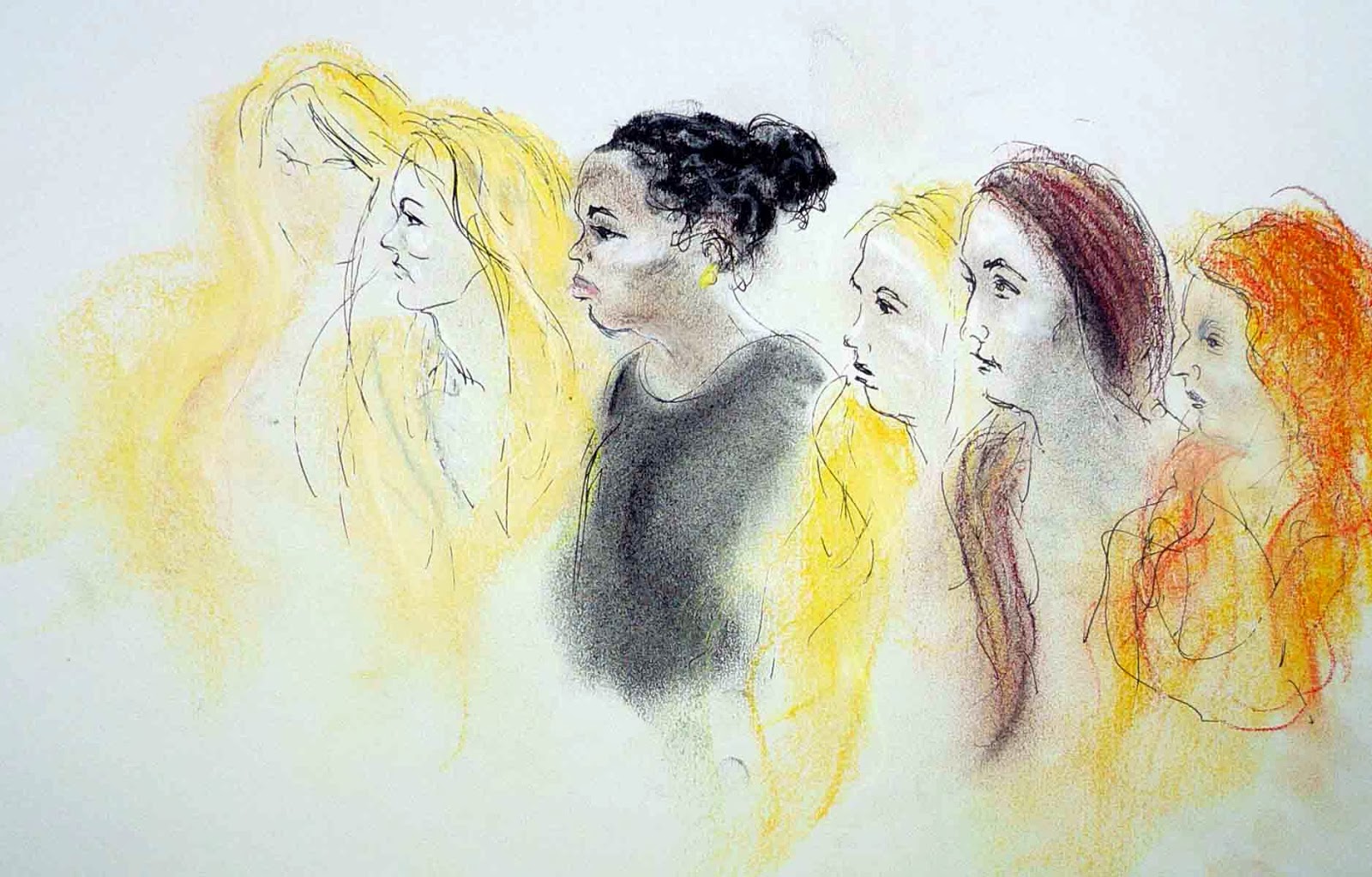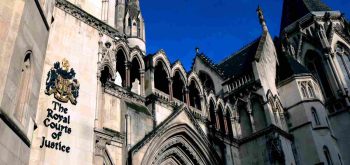ESSAY: Metropolitan Police Commander Peter Spindler described the Savile Case as a watershed in abuse investigations praising the media and the victims for exposing the scale of the abuse by the once respected deceased entertainer. Operation Yewtree has now expanded to a criminal investigation, the police have received allegations about other entertainers, write Mark Barlow and Mark Newby.
The investigation team now comprises 30 police officers and has identified 300 possible victims of abuse by Savile. High profile arrests of Gary Glitter and Freddie Starr have been made and the police enquires continue.
- This article is written by Mark Barlow, a barrister at Garden Court North Chambers in Manchester and Mark Newby, a solicitor Advocate at Quality Solicitors Jordans in Doncaster.
Now in tandem we have the recent call by Keith Towler, Child Commissioner for Wales, for a new enquiry into the allegations made by a former resident at Bryn Estyn, Steve Messham of being shared amongst a paedophile ring which included a prominent Conservative politician, business men and police.
A modern day witch-hunt
The Waterhouse Inquiry (Lost in Care) has been accused of only uncovering a fraction of the abuse that went on at this establishment. It is alleged that former residents were prevented from telling their full stories because of the involvement of such prominent and well-known individuals. Such allegations are serious and undermine public confidence, with the lingering suggestion of interference by the authorities to safeguard powerful individuals.
David Cameron, the Prime Minister has responded with the appointment of a senior independent figure to look into the original Waterhouse Inquiry and the nature of that probe was announced by Home Secretary, Theresa May in the House of Commons on Tuesday afternoon. This prompt response highlights the power that these allegations generate. It must be remembered that the Waterhouse Inquiry was the backdrop to the largest number of police operations into other care homes throughout England and Wales. The legacy of which remains with us today, with many convictions being overturned and those convicted still asserting their innocence of what was described as a modern day witch-hunt.
It was a phrase coined by the now deceased author Richard Webster (pic above) in his book The Secrets of Bryn Estyn: The Making of a Modern Witch Hunt who noted the danger of the witch-hunt that can follow.
‘There can or at least there should be no doubt that child sexual abuse is one of the most serious problems of our age, and that it is more widespread than most people are prepared to accept. But onto this palpable and disturbing reality we too have projected a fantasy. According to this fantasy those who sexually abuse children are seen not simply as human beings who have committed criminal acts but as the ultimate incarnations of darkness, evil and cruelty. So powerful has this fantasy become and so urgent is our need to rid the world of anyone who might conceivably be a paedophile that the requirement for evidence has all but disappeared. It is for this reason that the innocent are almost as likely to be arraigned as the guilty.’
Before leaving Webster’s book we should also be clear that the suggestion now being made of ‘shadowy political figures’ being involved is not a new story as the media would have us believe. These were matters raised by the Independent in 1991 which also suggested the police themselves were covering matters up, Scallywag, the defunct satirical magazine, and others. These allegations also did not centre in an isolated way with Bryn Estyn alone and the way these matters have been reported again demonstrate the danger of unrestrained reporting taking matters out of historical context.
Back then to the case that has started all of this again.
There is little doubt that Savile’s exposure and fall from grace has been dramatic and in the full glare of the national media. Sensational reporting has led to hundreds of complainants coming forward (if they are genuine allegations they are to be welcomed) and has raised concerns about the way national institutions behaved at the time. Savile is dead and is unable to respond to these allegations. However society’s approach to these sort of historic allegations and it’s response are not so clear cut. The safeguarding of children is the priority, so parents can feel secure that their children are safe from sexual and physical abuse. The development of child protection policies and the greater awareness of child sexual abuse over the last decade have had a direct impact upon the safeguarding of children and young persons.
There are a few key concerns that arise in the Savile case that are illustrative of the problems that these historic cases present and these ought to be openly questioned – not from a perspective of in any way believing that Savile could be innocent of the allegations made but rather placing the case in a proper context.
Also in order to attempt to preserve the right to a fair trial for those currently awaiting trial for historic sex abuse.
In fact the reality is that the standards to which we normally apply to the investigation of cases of this nature can never now apply to the Savile Case. However thorough the police investigation might be, it will never answer the question of whether Savile was guilty of the offences alleged ‘beyond reasonable doubt’.
The reason for this is obvious because the police can only now rely on evidence from one side of the case and must assess it only on the basis of whether there would be enough evidence to pass the code test for prosecution namely whether if Savile had been alive would there have been sufficient evidence to prosecute. Importantly no criminal trial will now occur thereby enabling the evidence to be challenged and for Savile to answer the allegations. The rigor of a criminal trial process is not going to happen.
The danger of assumptions
It is particularly important not to simply assume any person accused of such allegations is guilty because of the number of people making allegations or the police belief that the victims are being truthful. Miscarriages of justice happen and have happened with historic allegations. These are the most difficult cases to investigate.
The delay creates real prejudice in obtaining independent evidence that supports or disproves the allegations. An accused person can only deny committing the offences after such a period of delay.
Simply relying upon the number of complainants is never a satisfactory basis upon which to secure conviction. The real dangers of contamination, collusion and mistaken memories make the whole process extremely difficult. There have been clear examples of the most horrendous evidence of sexual abuse not being true and it is a mistake to make assumptions until all of the evidence has been considered.
A robust denial may often be the only defence and which, frankly in today’s environment is insufficient to defend such historic allegations. These issues were recently illustrated in Mark Newby’s speech at the Richard Webster Memorial Lecture.
The Savile case has a number of disturbing features which highlight the difficulties faced where there has been a significant delay. The fact that a complaint is made does not and could never be proof that it is true. The assertions made by the police even before the investigation is complete that the victims are truthful are of concern. Statements made in the House of Commons and the relentless media frenzy reporting not bound by the usual restrictions or temperance normally associated with a living suspect, highlights the real danger of a blind acceptance of the truth of the allegations before any fair and impartial investigation is concluded.
We have also seen some of the other undesirable aspects to these sorts of cases, which tug at the integrity of current process of investigating the abuse allegations being made.
Compo culture
The spectre of the compensation lawyer has already loomed large and we have heard now that the first claims are being made against the estate of Savile and that other actions based on vicarious liability are contemplated against the BBC. Whilst any victim of a crime is entitled for compensation, the speed at which the compensation lawyers have reacted in targeting the estate of Savile and warning the BBC of pending claims, raises once again concerns over the compensation culture which now exists.
This leads to the fundamental question as to how society deals with its past. The recognition in hindsight that society failed to protect children from abuse may go some way to assist the victims, but arguably, that has little impact in our modern society where child protection is taken very seriously and where known offenders are closely monitored in our communities. The acceptance that in the past our society failed in protecting children, will not impact upon how today we conduct our duty to safeguarding those in our care.
The real danger caused by the reporting of the Savile allegations is that the public will simply accept all that they have read and heard from the media. The danger is that the public will accept without challenge that all victims of childhood sexual abuse are truthful, which will have an impact upon the administration of justice and where they will be called for jury service and sit on a historic sexual abuse trial.
Sexual abuse is never a pleasant subject. It is highly emotive, but our system of trial by jury relies upon the public being unmoved or prejudiced in delivery of their verdicts. Many will question whether anyone charged in association with the Savile investigation or indeed as a result of any further police activity in North Wales will ever receive a fair and unbiased trial.
Historic allegations
The ever present danger of false allegations being made, and the change in public perception creates an atmosphere in which the system once again loses its perspective to differentiate between genuine allegations and false accounts. This has direct and lasting consequences upon those on the receiving end.
How do we prevent false or unreliable historic allegations leading to a miscarriage of justice? This is a sensitive, complex and difficult question to answer. Arguably for Savile it is too late to ensure any fair hearing. The authors in 2009 highlighted the challenges of institutionalised and domestic historic allegations in a paper The Challenges of Historic Allegations – The Way Ahead. Some would argue that very little has changed and that the legal protection to any accused has been eroded further with recent changes in the law and reported judgments from the Court of Appeal. Others would say that the law has changed to deal with the rights of the victim and to reflect a greater understanding of childhood sexual abuse. In 2009 we made the observations that the law struggles to maintain the important but conflicting needs of protecting the accused whilst bringing justice for the abused. That conflict has not changed.
The dangers associated with the investigation of complex multiple complainant historic allegations have been clearly recognised by all involved within the criminal process. The integrity of any process, either criminal or a public inquiry, rests upon a number of important and interrelated principles. That process must start with the well-trodden principle of an impartial and meticulous investigation.
Where the investigators keep an open mind and do not act as the judge, jury and executioner. That detailed reconstruction from reliable, credible witnesses or documents are sought out in order to support or undermine the allegations now being made. That the credibility and reliability of the complainant is questioned but at the same time respecting their individual rights to complain. That assistance is provided by specially trained and experienced professionals in dealing with the trauma of abuse and the subsequent disclosures. Any such investigation has to be mindful of the dangers of collusion and contamination. Just pausing for a moment in the Savile investigation this presents real difficulties in light of the extensive media reporting. Any investigation must be motivated by a search for the truth and not simply the recording of complaints. Experience has shown from the care home cases that multiple complaints do not necessary mean that they are true.
History has demonstrated the dangers associated with investigations into sexual abuse, whether they are recent or historic in nature. In 1991 the Orkney child abuse scandal rocked the nation and social workers removed a large number of children from their parents based upon allegations of satanic and ritualistic abuse.
Serious errors had been made and the scandalous nature of the allegations and the number of them led to draconian actions being taken and families devastated as a result. Those allegations were ultimately said to have been false and in turn this led to an Inquiry into the Removal of the Children (The Clyde Report).
This led to a number of far reaching recommendations to ensure the safety of the process in child abuse allegations. In particular it was recommended:
‘Where allegations are made by a child regarding sexual abuse those allegations should be treated seriously, should not be necessarily accepted as true but should be examined and tested by whatever means are available before they are used as the basis for action.’
Recommendation 88
In the 1990s and early 2000s attention turned to various residential institutions with allegations of sexual abuse made against carers and teachers. During the period between January 1998 and May 2001, 34 of the 43 police forces in England and Wales were involved in the investigation of child abuse in children’s homes and other institutions (Hansard, 1 November 2001, John Denham MP). Growing legal and media concerns surrounding the safety of resulting convictions culminated in 2002 with the Home Affairs Select Committee Report The Conduct of Investigations into past cases of abuse in Children’s Homes.
The committee, which included David Cameron, considered the conduct of these historic investigations and accepted that a new genre of miscarriages of justice had arisen from the over enthusiastic pursuit of those allegations. In a detailed report the Committee considered the broad range of views and opinions presented to them. A number of important recommendations were made. A number of which still remain outstanding today.
However the real significance of their report was the acceptance that those investigations did contribute to miscarriages and that police practices in the conduct of the investigation needed attention. In particular the recording of the interviews held with complainants. They also recommended that resources were channeled into researching and piloting the use of ‘statement validity analysis’, as a tool for evaluating the credibility of witness testimony in complex historical child abuse cases. They also invited the Association of Chief Police Officers to further revise the internal police handbook for senior investigating officers, with a view to minimising the risks of inducing false or exaggerated allegations.
The difficulties faced by those tasked with the investigation of historic allegations and the dangers of false or unreliable complaints being made are not a recent dilemma.
We have been there before.
However, the climate is now very different.
We live in a society where the presumption of innocence no longer exists. Natural justice no longer applies for those accused of child sexual abuse and trial by media has ensured that those accused of such crimes, will never receive a fair trial. The fear of being falsely accused was once the nightmare of care workers, teachers, youth leaders and the clergy. That nightmare has now reached our celebrities and entertainers.
It may even reach out and touch those who govern over us. It must always be recalled that such allegations are easy to make and in a climate where the proper investigation process is flawed, difficult to refute. The dangers of miscarriages of justice occurring on the back of the Savile allegations is a real possibility and which, our legal system is not best served to prevent.
These cases highlighted the important fact that people do make false allegations and do so for a variety of reasons. Many can be wholly unreliable. It can often be a very difficult line to identify those allegations, which are true, and those that are false however the integrity of our system of justice relies on the fact that we must strive to identify those who make false allegations and must never assume guilt merely because allegations have been made.
As Richard Webster noted in the concluding part of his book:
‘ For one of the greatest failings of the modern child protection movement is that, in its zeal to believe all allegations, it has betrayed the very children it seeks to protect and ushered in the return of the climate of disbelief it sought to banish forever.’
Further, Webster cautioned:
‘If we do not take action to reintroduce reason and restraint into our system of justice, and into our child protection procedures, then the tragedy will continue to grow inexorably. And, to the historian of tomorrow, the great European witch-hunt of the sixteenth and seventeenth centuries will be as nothing when compared with the world wide witch hunt that took place in the twentieth and twenty first centuries.’
As we descend into another set of investigations and inquiries all those involved including the Government should let those warnings ring loudly in their ears and ensure that we do not in our rush to do justice to the allegations made repeat the mistakes of the recent past.






